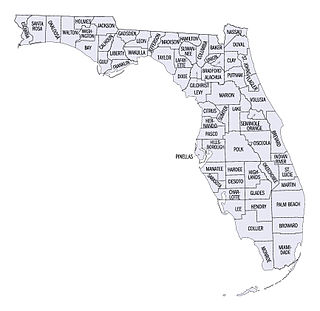External links
 | This Hawaiʻi state location article is a stub. You can help Wikipedia by expanding it. |
| Hawai'i State Judiciary |
Supreme Court |
The Hawaii state district courts are a level of state courts in Hawaii.
In addition, the district courts have jurisdiction over:
The Hawai'i State Small Claims court is a division of the district courts. Its primary purview is civil cases in which the amount in controversy is $3,500 or less. If the party being sued counterclaims against the plaintiff bringing the suit, the small claims court will still retain jurisdiction if the counterclaim is $25,000 or less.
The small claims court also has jurisdiction over all returns of residential security deposits from landlords, regardless of amount; returns of leased or rented personal property, where the property is worth $3,500 or less and where the rental amount claimed does not exceed $3,500; and suits to recover damages or repossess items stolen from business property, such as shopping carts, shopping baskets, or other similar devices.
The advantage of the small claims process is that it is informal. However, a disadvantage is that the decision of the judge is final and there is no right to appeal.
 | This Hawaiʻi state location article is a stub. You can help Wikipedia by expanding it. |

A county court is a court based in or with a jurisdiction covering one or more counties, which are administrative divisions within a country, not to be confused with the medieval system of county courts held by the high sheriff of each county.
Interpleader is a civil procedure device that allows a plaintiff or a defendant to initiate a lawsuit in order to compel two or more other parties to litigate a dispute. An interpleader action originates when the plaintiff holds property on behalf of another, but does not know to whom the property should be transferred. It is often used to resolve disputes arising under insurance contracts.
Small-claims courts have limited jurisdiction to hear civil cases between private litigants. Courts authorized to try small claims may also have other judicial functions, and go by different names in different jurisdictions. For example, it may be known as a county or magistrate's court. These courts can be found in Australia, Brazil, Canada, England and Wales, Hong Kong, Ireland, Israel, New Zealand, Philippines, Scotland, Singapore, South Africa and the United States.

The Hawaiʻi State Judiciary is the official name of the judicial system of Hawaiʻi in the United States. Based in Honolulu, the Hawaiʻi State Judiciary is a unified state court system that functions under the Chief Justice of the Hawaiʻi State Supreme Court who is its administrator-in-chief.

The Hawaii state circuit courts are the trial courts of general jurisdiction in Hawaii. They are the primary civil and criminal courts of the Hawaii State Judiciary. The circuit courts are the only Hawaii state courts to conduct jury trials..
A declaratory judgment, also called a declaration, is the legal determination of a court that resolves legal uncertainty for the litigants. It is a form of legally binding preventive adjudication by which a party involved in an actual or possible legal matter can ask a court to conclusively rule on and affirm the rights, duties, or obligations of one or more parties in a civil dispute. The declaratory judgment is generally considered a statutory remedy and not an equitable remedy in the United States, and is thus not subject to equitable requirements, though there are analogies that can be found in the remedies granted by courts of equity. A declaratory judgment does not by itself order any action by a party, or imply damages or an injunction, although it may be accompanied by one or more other remedies.

Subject-matter jurisdiction is the authority of a court to hear cases of a particular type or cases relating to a specific subject matter. For instance, bankruptcy court only has the authority to hear bankruptcy cases.

In the law of the United States, diversity jurisdiction is a form of subject-matter jurisdiction in civil procedure in which a United States district court in the federal judiciary has the power to hear a civil case when the amount in controversy exceeds $75,000 and where the persons that are parties are "diverse" in citizenship or state of incorporation, which generally indicates that they differ in state and/or nationality. Diversity jurisdiction and federal-question jurisdiction constitute the two primary categories of subject matter jurisdiction in U.S. federal courts.
Amount in controversy is a term used in civil procedure to denote the amount at stake in a lawsuit, in particular in connection with a requirement that persons seeking to bring a lawsuit in a particular court must be suing for a certain minimum amount before that court may hear the case.
The Virginia General District Court (GDC) is the lowest level of the Virginia court system, and is the court that most Virginians have contact with. The jurisdiction of the GDC is generally limited to traffic cases and other misdemeanors, civil cases involving amounts of under $25,000. There are 32 GDC districts, each having at least one judge, and each having a clerk of the court and a courthouse with courtroom facilities.

The Superior Court of the District of Columbia, commonly referred to as DC Superior Court, is the trial court for the District of Columbia. It hears cases involving criminal and civil law, as well as family court, landlord and tenant, probate, tax, and driving violations. All appeals of Superior Court decisions go to the District of Columbia Court of Appeals.
A cause of action, in law, is a set of facts sufficient to justify a right to sue to obtain money, property, or the enforcement of a right against another party. The term also refers to the legal theory upon which a plaintiff brings suit. The legal document which carries a claim is often called a 'statement of claim' in English law, or a 'complaint' in U.S. federal practice and in many U.S. states. It can be any communication notifying the party to whom it is addressed of an alleged fault which resulted in damages, often expressed in amount of money the receiving party should pay/reimburse.
The Superior Court is the state court in the U.S. state of New Jersey, with statewide trial and appellate jurisdiction. The New Jersey Constitution of 1947 establishes the power of the New Jersey courts. Under the State Constitution, "'judicial power shall be vested in a Supreme Court, a Superior Court, County Courts and inferior courts of limited jurisdiction.'" The Superior Court has three divisions: the Appellate Division is essentially an intermediate appellate court while the Law and Chancery Divisions function as trial courts. The State Constitution renders the New Jersey Superior Court, Appellate Division the intermediate appellate court, and "[a]ppeals may be taken to the Appellate Division of the Superior Court from the law and chancery divisions of the Superior Court and in such other causes as may be provided by law." Each division is in turn divided into various parts. "The trial divisions of the Superior Court are the principal trial courts of New Jersey. They are located within the State's various judicial geographic units, called 'vicinages,' R. 1:33-2(a), and are organized into two basic divisions: the Chancery Division and the Law Division".
Chicago & Northwestern R. Co. v. Crane, 113 U.S. 424 (1885), was a suit brought by a taxpayer and resident in the Town of Polk City, Iowa, on behalf of himself and all other resident voters, taxpayers and property holders, commenced suit in a state court of Iowa against two companies, praying for a peremptory writ of mandamus to compel the reconstruction and operation of the old line after the Chicago and North Western Railway, an Illinois corporation. changed the line and made it avoid the city, constructing a branch to the latter. C&NW Railway was leased the line by the D&M Railroad Company, an Iowa Corporation, who had received from a township in Iowa, in consideration of its agreement to construct and maintain a railroad to a city in the township, the proceeds of a special tax and a conveyance of a large amount of swamp lands. It constructed the railroad and operating it for a time before leasing it to C&N Railway.

The County Court of the State of Florida is the state of Florida's trial court, and is of general jurisdiction. There is a county court in each of Florida's 67 counties.
The Virginia Circuit Courts are the state trial courts of general jurisdiction in the Commonwealth of Virginia. The Circuit Courts have jurisdiction to hear civil and criminal cases. For civil cases, the courts have authority to try cases with an amount in controversy of more than $4,500 and have exclusive original jurisdiction over claims for more than $25,000. In criminal matters, the Circuit Courts are the trial courts for all felony charges and for misdemeanors originally charged there. The Circuit Courts also have appellate jurisdiction for any case from the Virginia General District Courts claiming more than $50, which are tried de novo in the Circuit Courts.
The Circuit Courts of Maryland are the state trial courts of general jurisdiction in Maryland. They are Maryland's highest courts of record exercising original jurisdiction at law and in equity in all civil and criminal matters, and have such additional powers and jurisdiction as conferred by the Maryland Constitution of 1867 as amended, or by law. The Circuit Courts also preside over divorce and most family law matters. Probate and estate matters are handled by a separate Orphans' Court. The Circuit Courts are the only Maryland state courts empowered to conduct jury trials.
The District Court of Maryland is a state lower trial court in the state of Maryland. It enjoys limited jurisdiction over "minor issues," including over all landlord-tenant law cases, replevin actions, motor vehicle violations, misdemeanors such as disturbing the peace, and certain felonies. The District Court does not conduct jury trials.

The Regional Trial Courts are the highest trial courts in the Philippines. In criminal matters, they have original jurisdiction.
Magistrate judge, in U.S. state courts, is a title used for various kinds of judges, typically holding a low level of office with powers and responsibilities more limited than state court judges of general jurisdiction.